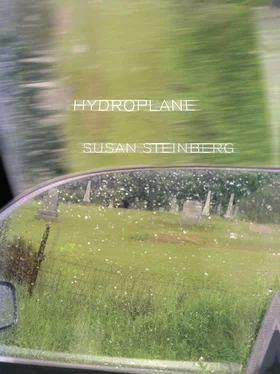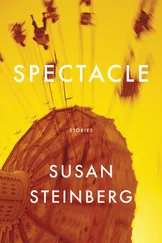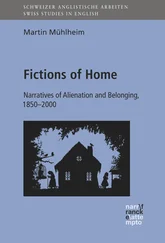Susan Steinberg - Hydroplane - Fictions
Здесь есть возможность читать онлайн «Susan Steinberg - Hydroplane - Fictions» весь текст электронной книги совершенно бесплатно (целиком полную версию без сокращений). В некоторых случаях можно слушать аудио, скачать через торрент в формате fb2 и присутствует краткое содержание. Год выпуска: 2006, Издательство: Fiction Collective 2, Жанр: Современная проза, на английском языке. Описание произведения, (предисловие) а так же отзывы посетителей доступны на портале библиотеки ЛибКат.
- Название:Hydroplane: Fictions
- Автор:
- Издательство:Fiction Collective 2
- Жанр:
- Год:2006
- ISBN:нет данных
- Рейтинг книги:4 / 5. Голосов: 1
-
Избранное:Добавить в избранное
- Отзывы:
-
Ваша оценка:
- 80
- 1
- 2
- 3
- 4
- 5
Hydroplane: Fictions: краткое содержание, описание и аннотация
Предлагаем к чтению аннотацию, описание, краткое содержание или предисловие (зависит от того, что написал сам автор книги «Hydroplane: Fictions»). Если вы не нашли необходимую информацию о книге — напишите в комментариях, мы постараемся отыскать её.
Hydroplane: Fictions — читать онлайн бесплатно полную книгу (весь текст) целиком
Ниже представлен текст книги, разбитый по страницам. Система сохранения места последней прочитанной страницы, позволяет с удобством читать онлайн бесплатно книгу «Hydroplane: Fictions», без необходимости каждый раз заново искать на чём Вы остановились. Поставьте закладку, и сможете в любой момент перейти на страницу, на которой закончили чтение.
Интервал:
Закладка:
The Orioles would have won that day. But the rain.
I left without a word.
I sat in the breakdown lane when my wipers shut off. And I didn't cry but it seemed I was. All those rainstreak shadows on my skin.
I at least felt sad, I admit. Picture the cafeteria's light green walls. The souvenirs they sell in gift shops. My father's shoddy overcoat. Pie crumbs on a smear of lipstick.
The gasping before the solid line.
The filmy eyes saying, save me, you fool.
But it wasn't my job.
Funny how slow I drove when the wipers recovered. Thinking of nothing but gray and gray and gray.
At home was quiet. Then a mouse darted through the hallway and back. Then the cat.
I thought, go for it.
I wasn't surprised by the chase. I almost expected the kill. It was a parallel.
And the mouse too didn't die all the way. Not at first I mean. Picture it. And the cat was already sleeping. I left the mouse in the hallway and slept.
In my dreams I was chased. Not surprising.
I waked when my father called in the morning. He said, don't be late.
Later he spoke. Nothing significant. And the rabbi said, one dies so one lives. I didn't believe him.
Later I talked to my father. I told him of the cat. The parallel.
I said, one dies so another dies.
How the ladyfriend carried on. Her lipstick bleeding to her teeth. Russian candies puffing her face.
She mumbled, what the hell is she talking about.
My father scowled.
I said nothing.
It was odd staying where he had lived. I wouldn't say scary. Just all his things going into boxes. A funny procedure. It went on for days and days.
At some point my father got the ashes. He dumped them in the damnedest place. He said, he deserved it.
Then he laughed.
Well, I couldn't tell this to the man at the bus stop. His stubborn posture would have bent. He would have screamed, that lousy bum! Your father's a bum!
He would have told a story to the crowd.
Here's how her father lost his job.
Here's how her father wrecked his life.
Here's how her father wrecked his kid.
But the ashes blended right into the drive. All that gray. My father backed the two-toned car and drove it two doors down. He carried the furniture alone. The paintings.
His father would have said, you lousy show-off. You'll wreck the paintings.
And after all that time. All that work.
I thought how he once showed me to paint. Outside. In fall. He wore a sweater that day too. A cap. I watched the exhale float from his face. And I wasn't thinking life that day. Just cold. Gray. We painted a tree. The plants around it. He said to use black for the trunk. Green for the leaves.
I used green for the trunk. He scowled.
My father waved from the window. He laughed at my tree.
The ladyfriend brought us bitter candies.
She always kept his furniture polished and more. His silver.
He always said, she's a keeper.
She said, I don't want his things. She packed up hers and went to her son's.
My father boxed the forks. Insignificant after all. He made me stand. He carried the chair on his back to the neighbor's. It was black leather. It was his father's most-liked chair. The one where I slept before dinner. His shoes slipped off when I slept. I no longer fit in a corner. Not surprising.
I took a spoon when my father wasn't looking. I put it in my pocket. A souvenir.
So much to say as the rain fell harder. I had no umbrella.
It was only an old man, you fool. A stranger.
And I needed to get to the market.
I noticed his shoes had come undone. I considered crouching. But he stood proud, letting the laces hover and flop.
Stubborn. Just like him.
His ladyfriend sure would have crouched and tied them. She would have said, you stubborn man.
I wonder now why I stood in the downpour. It was cold out.
I wonder too how he kept his cap. His things. You're not supposed to take it with you. Everyone knows.
It wasn't him, you fool.
I know.
When we finished putting things in boxes I didn't look around. There was nothing but space besides. Boxes. I left his house for the last time ever. My car wouldn't start. It was night. Raining again. The neighbor jumped my car with the two-toned car. Good as new.
Then in the breakdown lane I considered some things. Nothing significant now.
At home I remembered the mouse. It had crawled to a corner and died. I scooped it up with the spoon. I threw it to the street. Spoon and all. It disappeared into the downpour.
And now my hair was drenched.
I had no money for the bus. Just enough for the market.
My cat was old and slow.
My job.
And I was whistling again. He was withering there. I wouldn't say evaporating. But the word came to me.
Then the bus.
Caught
Lord she was glorious in that dress. Fresh, I would venture, brilliant.
And good to see the Chinese wilted flower pattern, perhaps outdated, of black and red on a night so wet. Fastened off-center, as it was, and short, I spied her knees despite my speed through the doorway, and suntanned they were, brilliant, golden.
My mother would have piped in, Cheap, but this girl, she struck me, and I struck her as well, though, funny, with the door is how I did. And she didn't flinch when it smacked her, though I did flinch outright, feeling the smack, then seeing her brilliant, static poise.
She was glorious in that light.
But here's me talking of a girl, of a dress, when I had rushed in rain-soaked, gasping, lord, like a wet dog, as the old saying goes, into the ladies' room, my hair matted flat, my skirt dripping wet as if water sprung from leaks in the skirt itself.
My mother would have said, Dry those clothes, had I shown to her house wet as that. Dry up, she would have said, pitching a towel. She would have said, A drowned rat is what she looks like, and I did look a sight, squeaking wet shoes across the tiles, squeezing water from my hair with paper.
I knew I had to rush — there was no denying — time was flying past.
There was dinner waiting and talk — we had hardly talked all year, I with my life, my mother with hers. There were neighbors waiting, and here I was late, the drive one more hour, at least, and what kind of daughter, yes, yes, I had heard it. I should have called more often, I should have driven quicker; I had heard it all. I would rush.
But I was soaked to the bones, as they say, and drying, not thinking of the reason I had rushed in first, which was to use the room, so to speak. How odd to say, to use.
And I was too soaked to use anything, really, my skirt matted smack to my legs, heavy with wet, and dark.
And this girl stood poised under the heat light, bone-dry, glorious in Chinese flowers, not looking at me, at my burst through the door, but looking only at herself in the mirror.
I would explain my lateness to my mother.
I would tell her weather, Bad weather, I swear.
She would say, She brings bad weather with her, She always has, Am I right.
She would say, The rainclouds must follow her around, all the times she's rushed in soaked from rain.
The neighbors would laugh behind their hands. They would give the looks that say, We shouldn't be laughing at the poor thing, should we.
And I would explain my look. That weather was to blame. That I dried my rain-soaked hair with paper, I swear, in a tavern, in the ladies'.
My mother would say, She could have stopped off, cleaned up, dried a bit more to be decent, for decency still counts, Am I right, And anything less than decent is not worth the drive.
Tell me if I'm not right.
I went into one stall, the girl into the other, both of us locking, unbuttoning, and sitting, though I never, in general, sat all the way, but here, for some reason, I did and hard. The seat was hot from the heat light, I ventured, so hot I could have slept there and waked in hours, days, when someone happened to knock and wake me. I could have slept there, head to the door.
Читать дальшеИнтервал:
Закладка:
Похожие книги на «Hydroplane: Fictions»
Представляем Вашему вниманию похожие книги на «Hydroplane: Fictions» списком для выбора. Мы отобрали схожую по названию и смыслу литературу в надежде предоставить читателям больше вариантов отыскать новые, интересные, ещё непрочитанные произведения.
Обсуждение, отзывы о книге «Hydroplane: Fictions» и просто собственные мнения читателей. Оставьте ваши комментарии, напишите, что Вы думаете о произведении, его смысле или главных героях. Укажите что конкретно понравилось, а что нет, и почему Вы так считаете.












